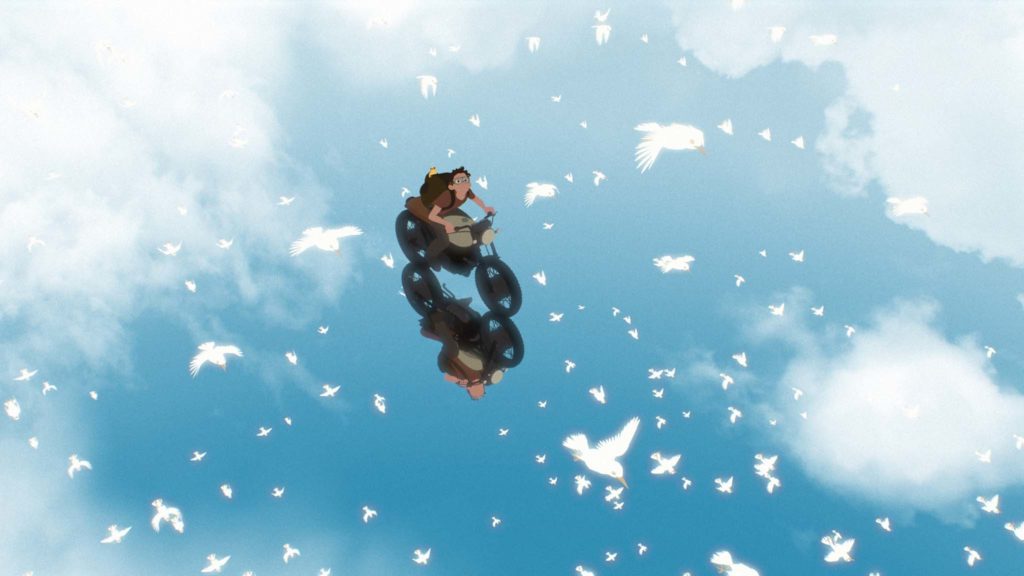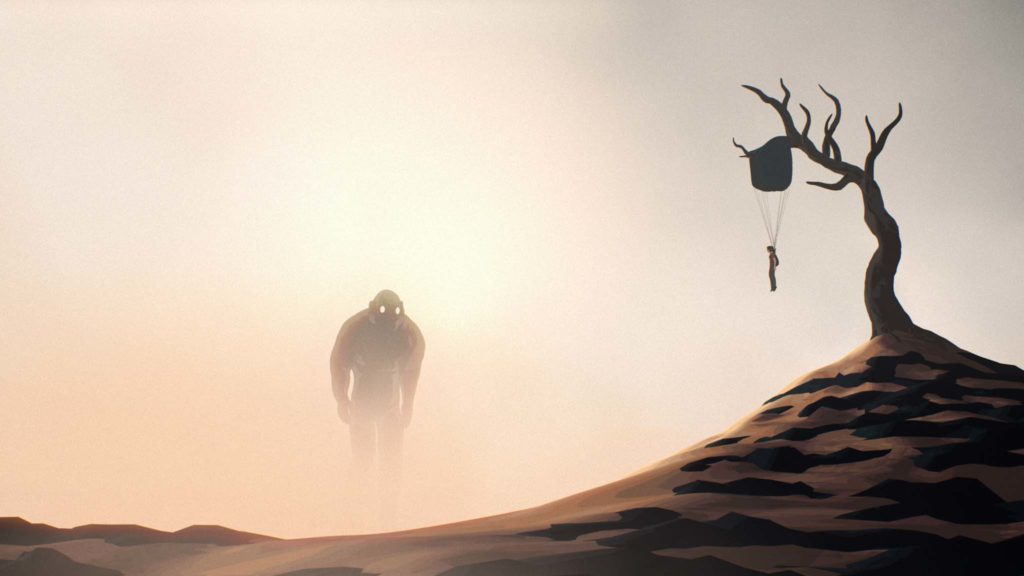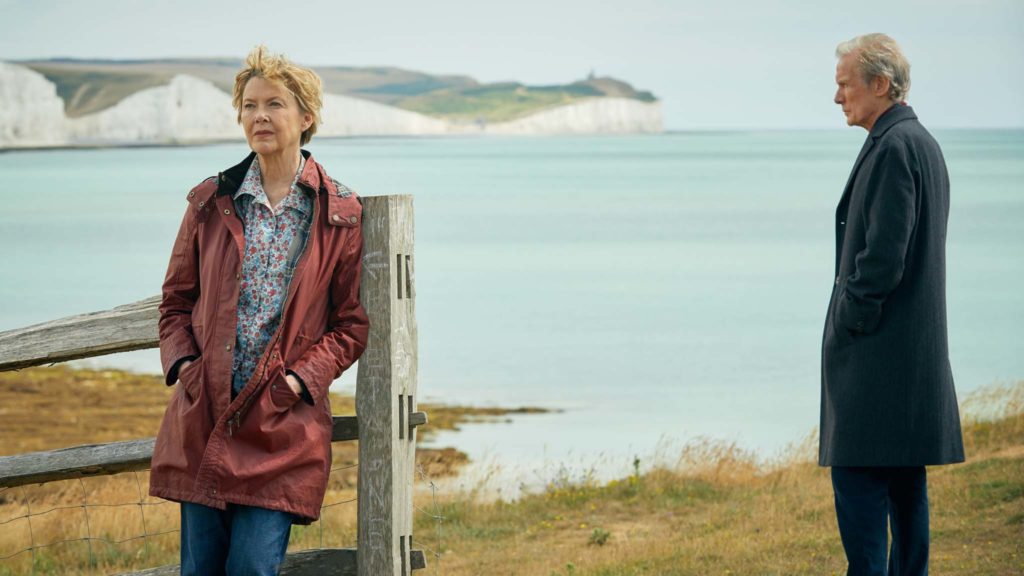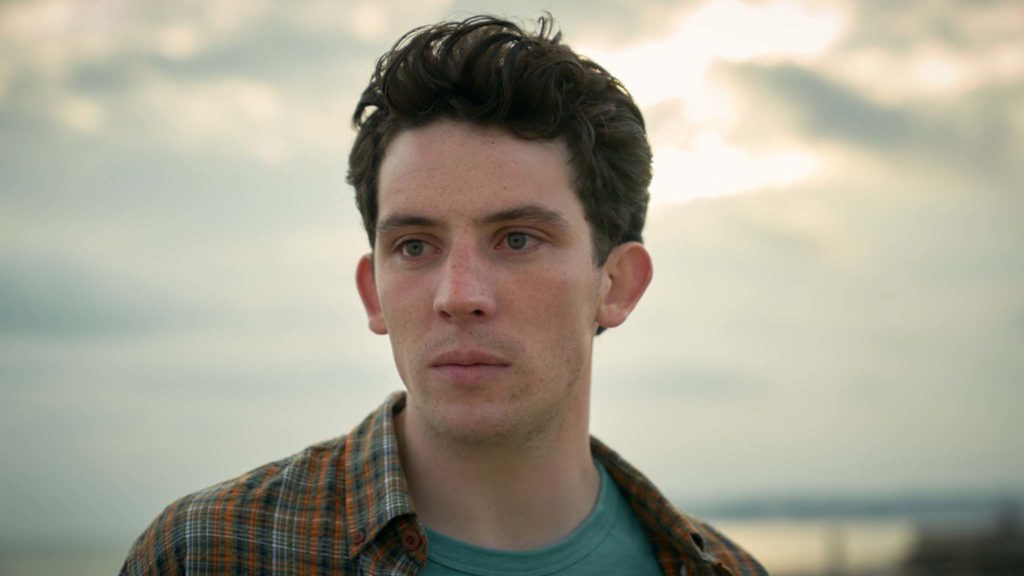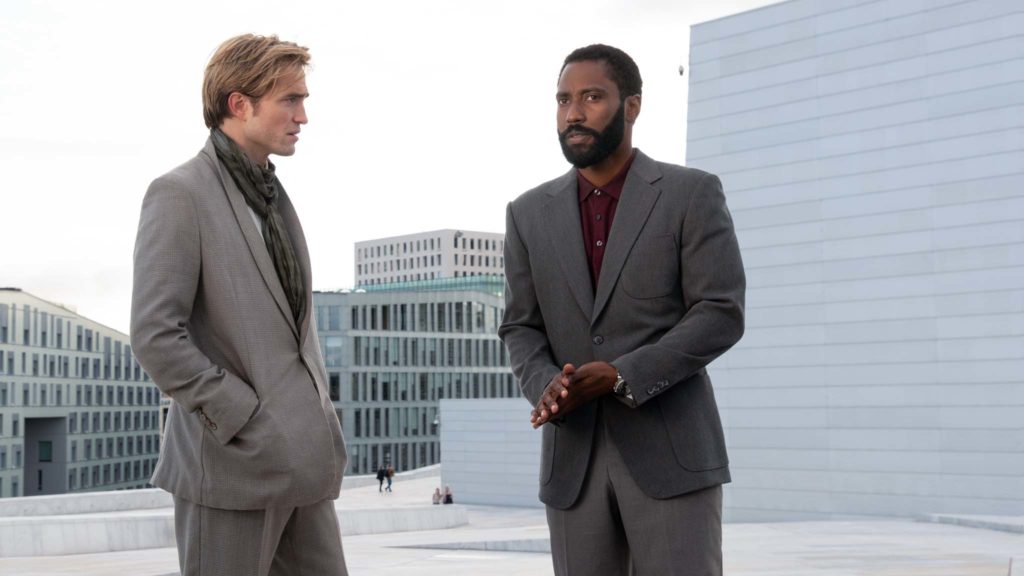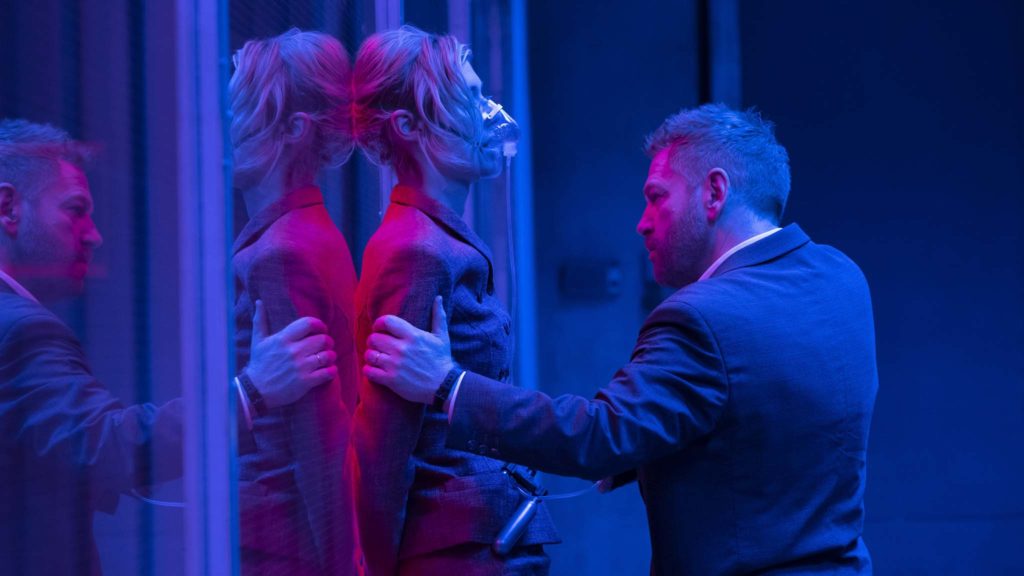Animation
Away (U)
Review: More than three years in the making, Away is a mesmerising computer-animated odyssey, which disproves the notion that film is a collaborative experience fuelled by the imaginations and toil of hundreds of creative minds. Latvian animator Gints Zilbalodis directed, wrote, edited, produced and composed the score for his impressive debut feature – a dialogue-free labour of love that nods affectionately to puzzle-solving video games including the PlayStation adventures Ico and Shadow Of The Colossus.
From the tantalising opening image of a boy dangling from a tree, the canopy of his parachute snagged on gnarled fingers of a sun-scorched branch, we are spellbound passengers on a fantastical journey along the spine of an unnamed island. Working alone, Zilbalodis makes some bold artistic choices to realise his haunting vision within a tight time frame. Animation on the central character’s face is predominantly restricted to altering the shape and size of brown eyes, which peer out beneath a jumble of hair that resembles a mound of dark chocolate-coloured cheese puffs.
Viewed from a distance, backgrounds are richly detailed, moving seamlessly from vast desertscapes and swaying forests of trees to treacherously steep, snow-laden mountains. Ambient sounds (chirruping birds, cascading waves, the crunch of sand beneath walking feet, a motorcycle engine coughing and spluttering to life) ebb and flow with Zilbalodis’ evocative soundtrack, which draws inspiration from Max Richter and Sigur Ros.
Bookmarked into four self-explanatory chapters – Forbidden Oasis, Mirror Lake, Dream Well and Cloud Harbor – the story begins with the boy tumbling from the tree and running into a cave to escape a shape-shifting giant with glowing white eyes. This behemoth relentlessly pursues the child after he stumbles upon a rucksack and motorcycle and follows a trail marked on a map that seemingly leads back to humanity on the eastern side of the island. On route, a hungry yellow chick becomes the boy’s attentive travelling companion, staring intently back at the colossus chasing them as they pass beneath a series of primitive stone archways that neatly mark the path to salvation.
Away is a wildly ambitious trek through a dreamlike world not far removed from Studio Ghibli (My Neighbor Totoro, Spirited Away), where a hungry llama grazes in a field of swaying daisies and wide-eyed cats congregate around a geyser sinkhole waiting for a thunderous gush of refreshment. In the space of 75 minutes, Zilbalodis subjects his young hero to various weather systems and orchestrates some impressively elaborate sequences including a vertiginous walk along a rotting wooden bridge and a hair-raising mountain descent in the shadow of an avalanche. On every technical level, it’s a mightily impressive achievement.
Find Away in the cinemas
Drama
Hope Gap (12A)
Review: Towards the end of writer-director William Nicholson’s portrait of a marriage in crisis, an embittered wife muses aloud, “That’s the thing about unhappiness. After a while it stops being interesting”. Hope Gap is evidently aware of its flaws. Adapted from Nicholson’s 1999 play The Retreat From Moscow, this dialogue-heavy three-hander struggles to escape the gathering dust of its stage origins despite the efforts of cinematographer Anna Valdez Hanks to swoop endlessly over the chalk cliffs of the south coast, where iridescent rock pools are exposed by a retreating tide.
Composer Alex Heffes’ unobtrusive, sombre orchestrations herald the gathering storm when a bookish, emotionally repressed husband prepares to abandon his outspoken spouse for a new life, wrung dry of bitterness and regret. Bill Nighy is well suited to the role of a stuttering academic, who can barely articulate his frustration. Annette Bening valiantly goes into battle with an English accent as his aggrieved wife and ends up losing the war for our sympathy by repeatedly drawing attention to her mannered delivery. Caught in the middle is God’s Own Country star Josh O’Connor, who lacks a compelling character arc outside of his perfunctory role as peacemaker between feuding parents.
The sun initially shines on secondary school history teacher Edward (Nighy) and wife Grace (Bening) as they casually orbit one other in the East Sussex coastal town of Seaford. He indulges a fascination with Napoleon’s 1812 invasion of Moscow flanked by toy soldiers on his desk while she pores over verses for her poetry anthology about the human condition. Their common bond is a son, Jamie (O’Connor), who lives in London and rarely visits. “He’s got his own life,” sighs Edward. “Well, why doesn’t it include us?” forcefully counters Grace.
One week shy of their 29th wedding anniversary, Edward secretly telephones Jamie to come home for the weekend. It is part of a cowardly plan to tell Grace that he intends to leave her for another woman (Sally Rogers) then rely on Jamie to pick up some of the slivers of the shattered marriage. On Sunday morning, while his wife is at mass, Edward confesses everything to his tearful son, who had hoped to return to London to resolve his relationship woes. “How long will it take? I don’t want to be here when you do it,” asks Jamie. “Give me half an hour,” wearily responds his old man.
Hope Gap fails to bridge a divide between us and the anguished characters. Nicholson crafts meaty dialogue including a zinging speech for Bening, which likens the breakdown of a marriage to bloodless murder. While his carefully crafted words land with precision, the raw emotions behind them are little more than glancing blows. Love hurts much more than this.
Find Hope Gap in the cinemas
Sci-Fi
Tenet (12A)
Review: Time is a fluid construct in Tenet, trickling backwards and forwards and occasionally eddying into rippling pools of possible pasts, presents and futures. Actions can be subtly recalibrated with foresight of the consequences and two iterations of a person might glide along a single timeline with meticulous, split-second planning to avoid catastrophic direct contact. Writer-director Christopher Nolan’s espionage thriller is a rush of blood to the head that demands to be unscrambled on a big screen.
Shot on 65mm and large-format Imax cameras, Tenet is neither a sequel nor prequel to the 2010 dreamscape Inception but a standalone, intricately assembled puzzle box inlaid with outlandish action set-pieces and eye-popping special effects. To visualise pivotal moments when time flows simultaneously in opposite directions, Nolan repeatedly performs a simple sleight of hand: reversing chronology to seemingly pull a rabbit out of a hat, which he placed in plain sight earlier in the story. Sometimes, magicians show you how the trick is done, or fool you into believing that’s what you’re seeing.
Discordant rumbles in the score of Swedish composer Ludwig Goransson, an Academy Award winner for Black Panther, replicate the sweep of Nolan’s frequent collaborator, Hans Zimmer, who was otherwise engaged on the sci-fi opus Dune. While music quickens the pace, ponderous dialogue about cause and effect, entropy and the grandfather paradox accounts for unnecessary bloating to the running time. Curiously, the stakes don’t feel perilously high given one character’s pithy summation of the situation: “As I understand it, we’re trying to prevent World War III.”
Opening salvos are exchanged when an American operative known as the Protagonist (John David Washington) accepts a new assignment with cryptic instructions to perform a secret hand gesture (interlaced fingers) in conjunction with a palindromic code word: Tenet. “It’ll open the right doors. Some of the wrong ones too,” teasingly explains his handler (Martin Donovan). A Mobius strip of evidence leads the Protagonist and mission partner Neil (Robert Pattinson) down the rabbit hole of bullying Russian billionaire Andrei Sator (Sir Kenneth Branagh) and his wife (Elizabeth Debicki).
Tenet bears Nolan’s fingerprints with its ambitious blend of high-concept storytelling and in-camera stunt work including a daring heist on a busy six-lane motorway that necessitates multiple vehicles screeching forwards and in reverse at dizzying speed. The technical virtuosity required to realise his elaborate vision with minimum digital effects boggles the mind more than the symmetrical plotting or interplay between characters.
By design, they are stripped of back stories including Washington’s enigmatic hero. Only Debicki’s emotionally brittle spouse resonates on a satisfying emotional level, although she suffers grievously like many of Nolan’s female characters. The writer-director’s on-screen talisman, Sir Michael Caine, savours a throwaway role as an aristocrat with a trembling finger on the pulse of impending doom. For all the smoke and mirrors, it’s possible to remain one step ahead of Nolan’s script, anticipating junctures when characters will glance off each other without fully understanding the implications until much later. Or much earlier. No, both. Pass the paracetamol and popcorn.
Find Tenet in the cinemas


